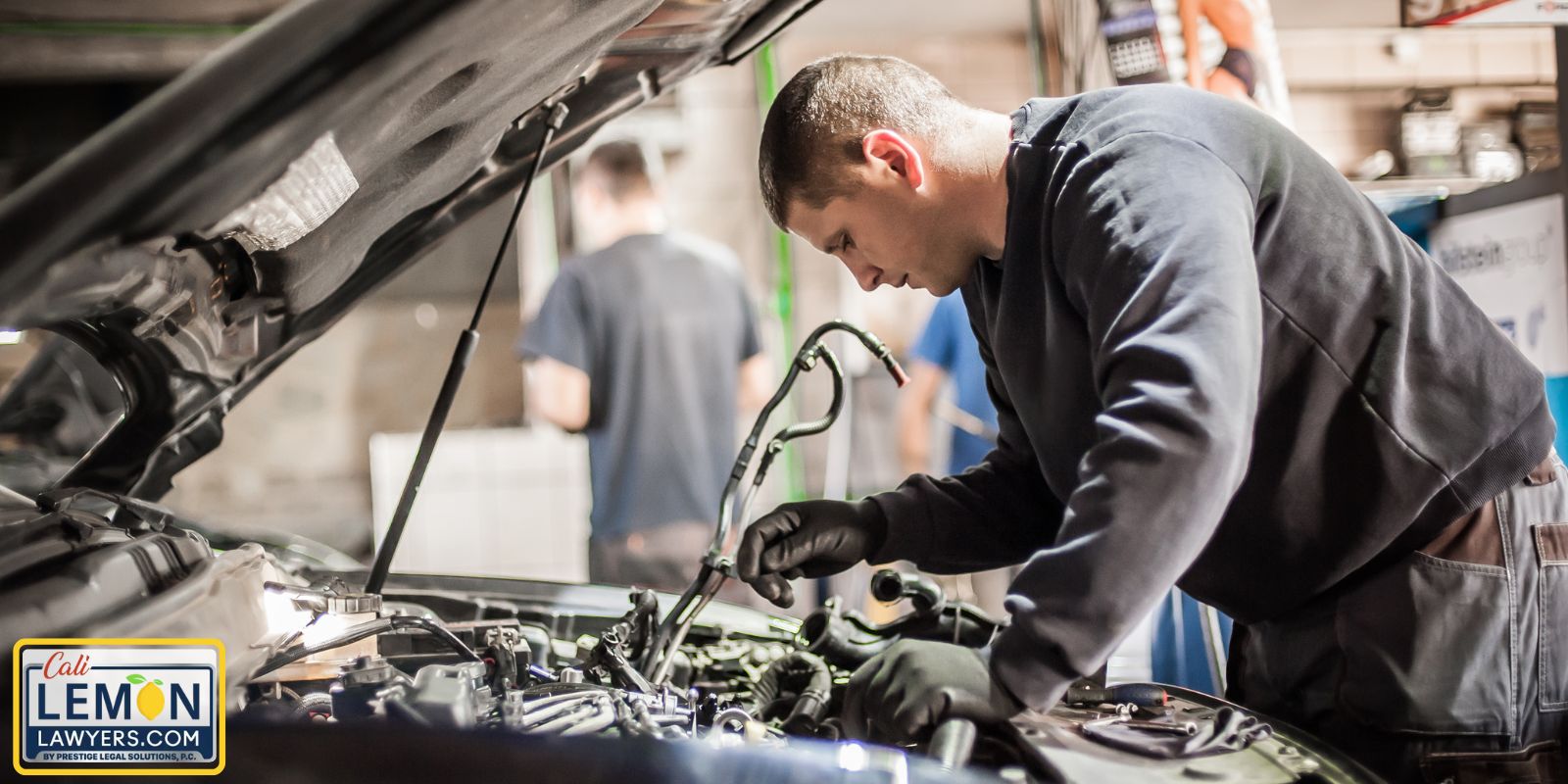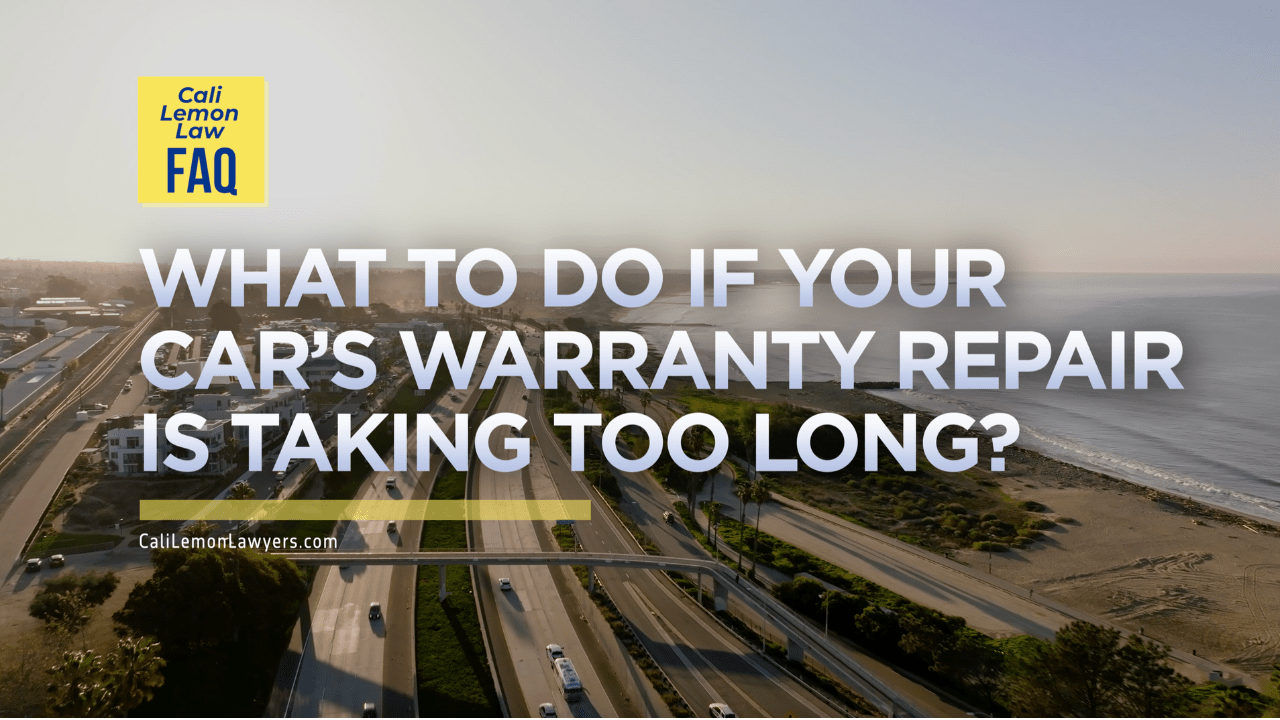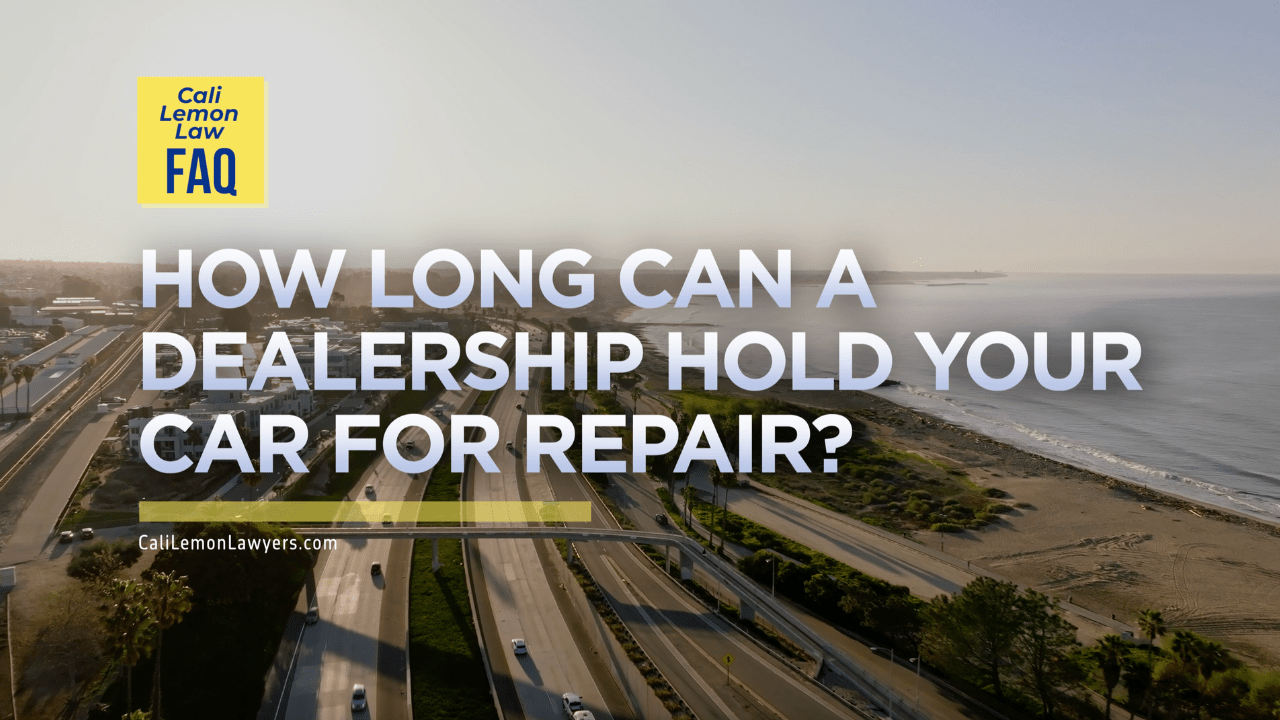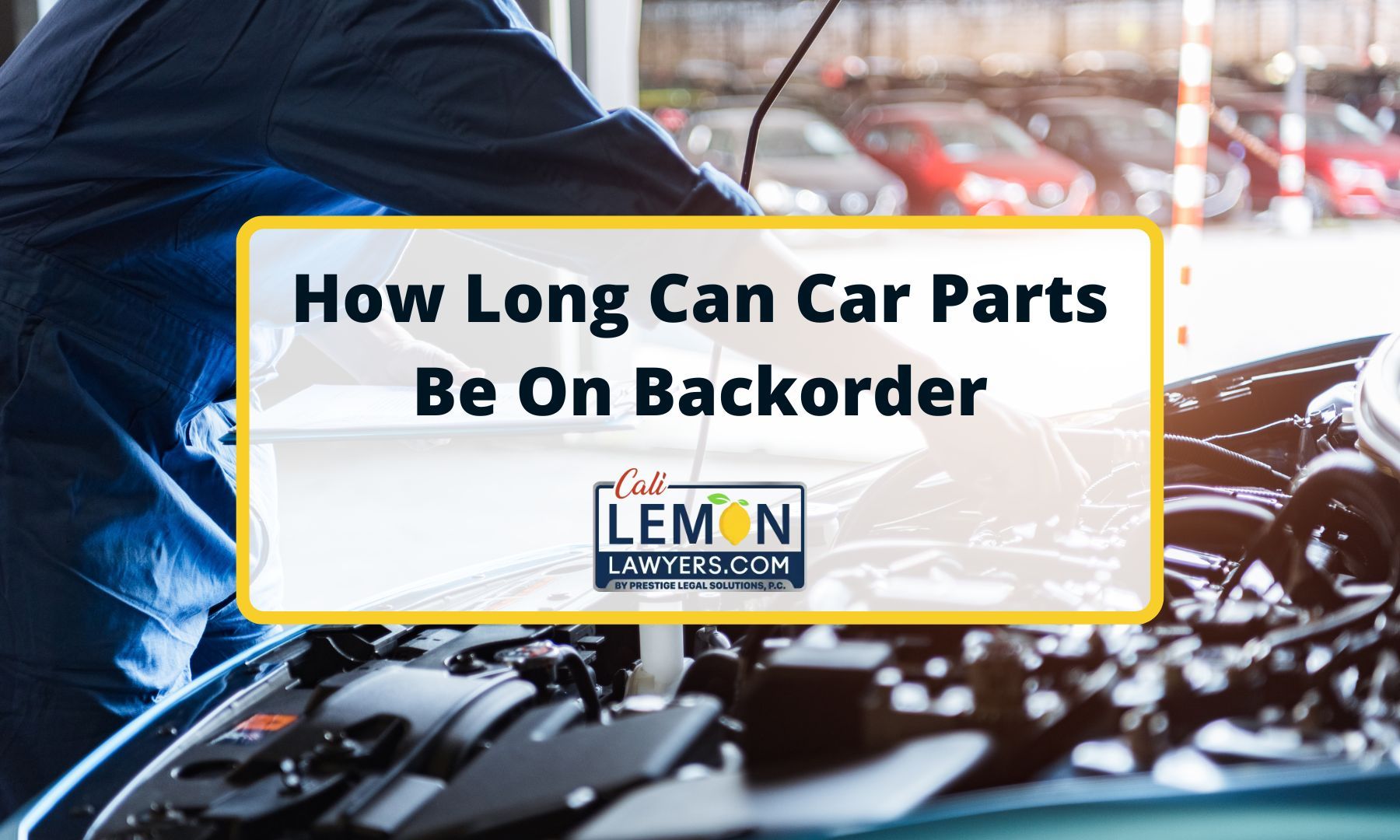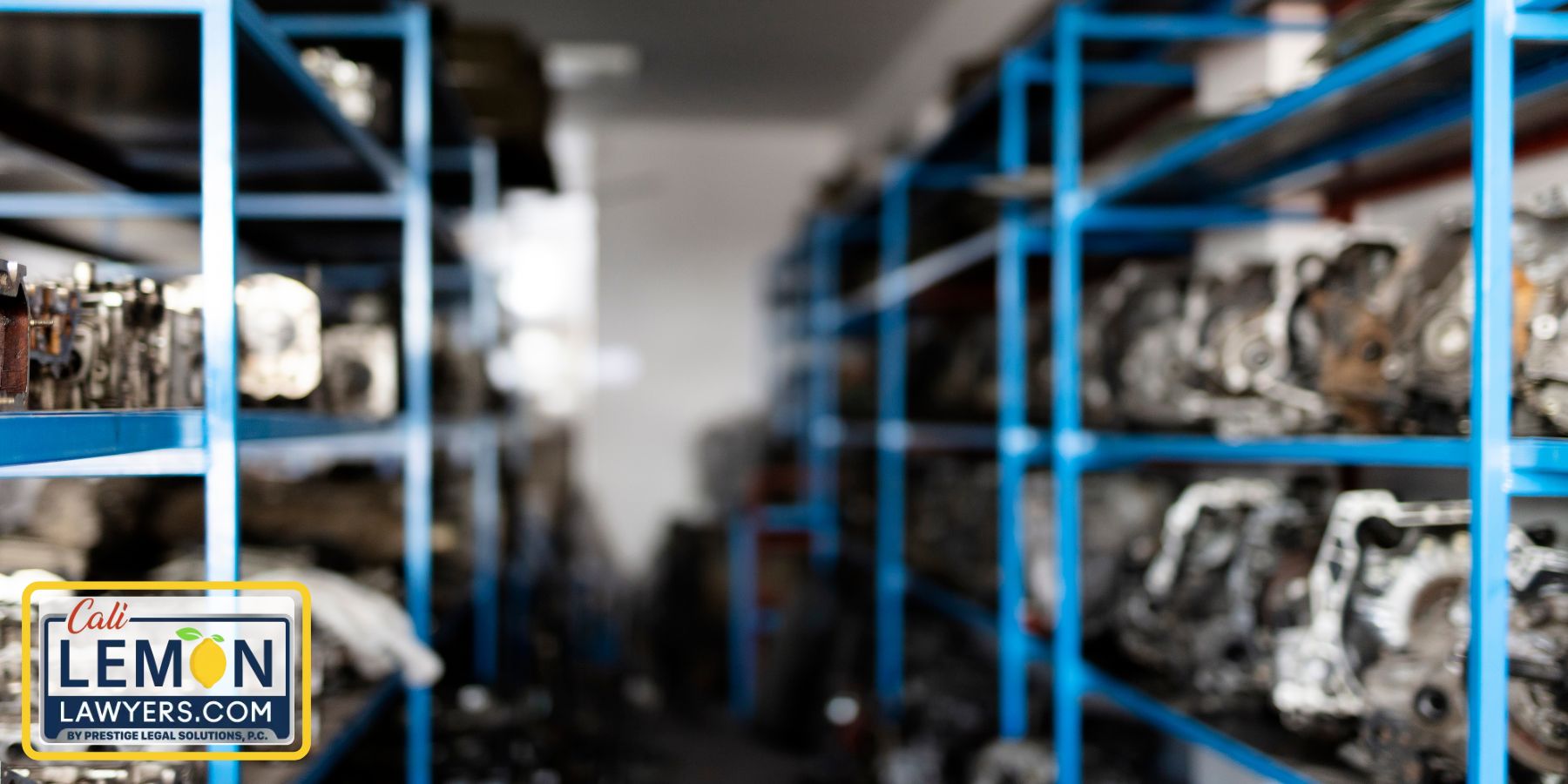How Long Does a Lemon Law Case Take?
California lemon law protects car buyers who purchase or lease defective vehicles. While you can get compensation through a lemon law claim, you might want to know ahead of time how long it takes to get the compensation you deserve.
In California, the lemon law process can last from a few weeks to a few months. In some cases, it may even take longer depending on the nature of the case.
If you’ve recently purchased or leased a lemon, our experienced California lemon law attorney can help you secure maximum compensation as fast as possible. We’ve reviewed over 40,000 cases in the past 3 years, so we have the experience to help you. Book a free case evaluation with our experts to get started.
In this article, we’ll discuss the answer to the question ‘How long does a lemon law case take’, the factors that can influence the duration of the case, and important tips to help you speed up your lemon law case.
Average Duration of Lemon Law Cases
Generally, the average duration of a lemon law case can vary depending on several factors. Such factors include how complex the case is, the cooperation of the manufacturer, the availability of evidence, and whether the case is resolved through arbitration or goes to trial.
The average lemon law settlement under California’s lemon law may take up to 90 days. It can be more or less depending on the nature of the case.
For example, if the parties involved fail to come to an agreement after the discovery process, the case may proceed to trial. The higher the case goes, the more time it’s likely to take. Note that only a few lemon law cases reach the trial stage; many are settled before that point.
On the other hand, Texas lemon law cases can last around 10 months. Looking closely, each state has its factors that contribute to the differences in the duration, and they should best be considered and well understood for quicker and better resolution. Here are some:
How Long Does a Lemon Law Case Take – 6 Key Factors That Determine the Duration of a Lemon Law Case
The more complex a lemon case is, the longer it will likely take. Straightforward defects that are easy to detect such as a malfunctioning engine may be resolved quickly through buybacks or cash and keep settlement. Contrarily, more hard-to-diagnose problems such as chronic electrical problems may take more time to figure out. There might be a need for lengthy investigations and extended repair attempts, making the lemon case longer.
1. Clear Evidence
If you have strong and detailed proof, your lemon law claim will most likely take a shorter time to resolve. For example, a comprehensive record of previous vehicle history, multiple repair attempts, and the provisions of the manufacturer’s warranty make the case easier to settle. But, if there is no proper documentation, the case may linger due to unclear evidence and may eventually turn in the manufacturer’s favor.
2. Specific State Lemon Law Provisions
Each state has its lemon law with unique definitions of what makes a defective car a “lemon.” The state lemon law also specifies repair attempt requirements and potential dispute resolution procedures. For instance, the California lemon law includes provisions for used car lemons and leased car lemons. Beyond major defects, the California lemon law also covers issues such as excess out-of-time service.
If you want to know more about lemon lawsuits under the California lemon law, book a free call with our lemon law experts at Cali Lemon Lawyers to evaluate your case and guide you through the right course of action.
3. Manufacturer’s Cooperation
When your manufacturer readily acknowledges the status of lemon vehicles and agree to compensate, the case will be shorter. Whether it’s a replacement vehicle or a cash and keep settlement, how willing the manufacturer is to resolve the case also helps shorten or elongate the time.
4. Publicity and Media Attention
High-profile cases or those attracting media attention may be prioritized by manufacturers or courts, leading to faster resolutions. Strategic use of publicity can put pressure on manufacturers and expedite the process.
5. Financial Capacity
The financial resources of both parties can also affect the timeline of your case. Manufacturers with deep pockets may be more inclined to engage in protracted litigation, while individuals facing financial constraints may be more motivated to reach a quicker settlement.
6. Availability of Lemon Law Experts
Access to an experienced California lemon law attorney familiar with the state’s specific regulations and procedures can improve your chances of a quick and favorable outcome. That’s why you should not hesitate to reach out to Cali Lemon Lawyers to handle your case quickly and efficiently.
Phases of a Lemon Law Case and Their Potential Timeframe
Here’s a comprehensive step-by-step guide, outlining the typical stages of a lemon law case and their expected timeframes:
Initial Assessment and Documentation: This phase may take between 1 to 3 weeks. It involves assessing whether your vehicle qualifies under the California Lemon Law. Confirm if the vehicle is covered by a warranty, is within the valid warranty period, and if it has a substantial defect that was not repaired after a reasonable number of attempts. You should collect all relevant documents such as the purchase or lease agreement, warranty details, and repair invoices. Keep a detailed record of all repair attempts, including dates, issues, and outcomes.
Notification and Repair Attempts: Before filing a claim, the lemon law requires that you must give the manufacturer or dealer an opportunity for a reasonable number of attempts to fix the issue. The exact number of attempts can vary depending on the severity of the defect and the specific circumstances of each case. This phase may take a few weeks depending on the number of attempts allowed.
Consultation with a Lemon Law Attorney: An attorney can assess your case, help gather additional evidence and necessary paperwork, and guide you through the legal process. They can also advise you on whether your case is suitable for settlement negotiations or if a lawsuit is a better option. The consultation itself may take a few hours, but deciding to hire an attorney and discussing the case might extend over a few days or weeks.
Filing a Lemon Law Claim: If the manufacturer or dealer is unable to repair your vehicle after a reasonable number of attempts, the next step is to file a Lemon Law claim. You need the assistance of your lemon law attorney since it involves knowing your legal rights before taking formal legal action against the manufacturer. Filing the claim can be a relatively quick process, often completed within a few days
Arbitration or Lawsuit: You may choose to go through arbitration or file a lawsuit. It depends on your preference and the nature of your case. Arbitration is a less formal process and is generally quicker than going to court. A lawsuit, on the other hand, is a more formal process and can take longer.
Hearing or Settlement Negotiations: Whether you choose arbitration or a lawsuit, there will likely be a hearing or a settlement meeting. This is where you and your attorney present your case, including all evidence of the vehicle’s issues and the failed repair attempts. The actual hearing or conference might be a single event, but scheduling and preparation can extend the timeline.
Expert Tips to Speed Up Your Lemon Law Case
By following these tips, you can increase your chances of a faster settlement for your lemon law case and achieve a successful outcome. Remember, the key is to be proactive, informed, and patient throughout the process.
- Keep a detailed record of all repair attempts, communication with the manufacturer, and the impact of the vehicle’s defects on your life. This includes dates, times, names of individuals you spoke with, and the content of conversations.
- Seek professional advice from an experienced lemon law attorney who can assess your case’s eligibility, explain your rights and options, and guide you through the legal process.
- Respond promptly to requests for information or documentation from your attorney. Stay informed about the progress of your case and ask questions if you have any concerns.
- Be prepared to compromise within reason, but don’t settle for less than what you deserve.
- Discuss the pros and cons of mediation with your attorney to decide if it’s right for your case.
- Be patient but persistent. Don’t get discouraged if the process takes longer than you expected.
- Discuss the potential costs with your attorney upfront and make sure you are comfortable with the financial commitment.
- Stay up-to-date on the latest lemon law developments in your state by consulting with your attorney or visiting the website of your state’s attorney general.
Is your Lemon Law Claim Taking Longer Than Anticipated?
If you’re facing a lemon law case in California and you need legal assistance, look no further than Cali Lemon Lawyers. We have a team of experienced attorneys dedicated to getting you an easy resolution without a stressful process. Contact us today online or call us at 866-405-4038 for a free consultation.
Facing a lemon law case can be stressful and overwhelming. All you need is to understand the process, know your options, and seek legal advice. With that, you can approach your case with a favorable resolution.





